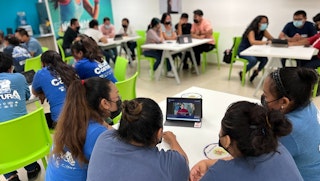Investment Profile
Working Capital Innovation Fund
Jump Links
Working Capital Innovation Fund (WCIF) is a $22M fund investing in early-stage companies that address labor exploitation in multinational supply chains. WCIF’s 16 portfolio companies have directly reached 900,000+ workers in 64 countries.
Investment size:
$3M
Type
Fund
Geography
Global
Date
2017



